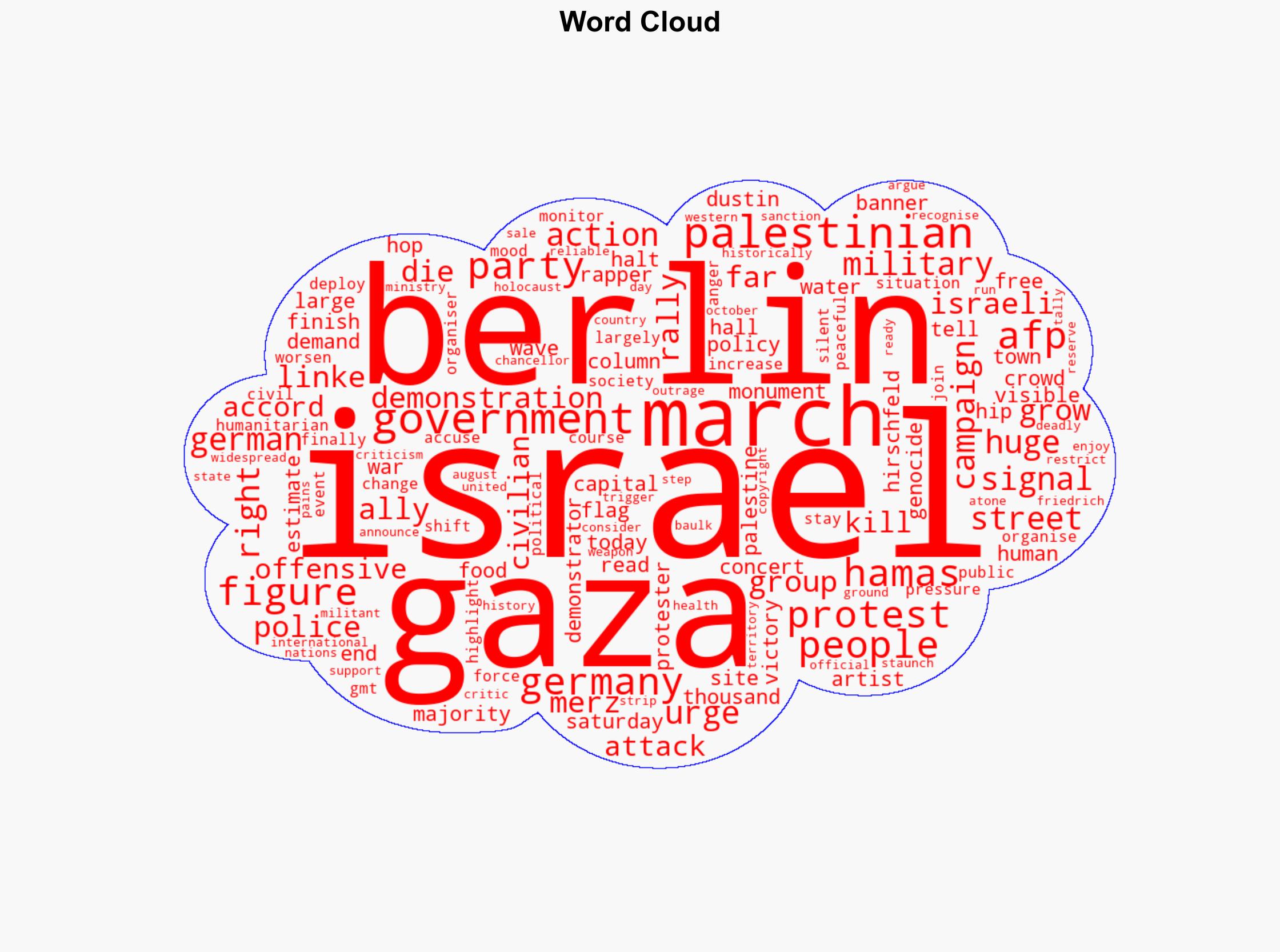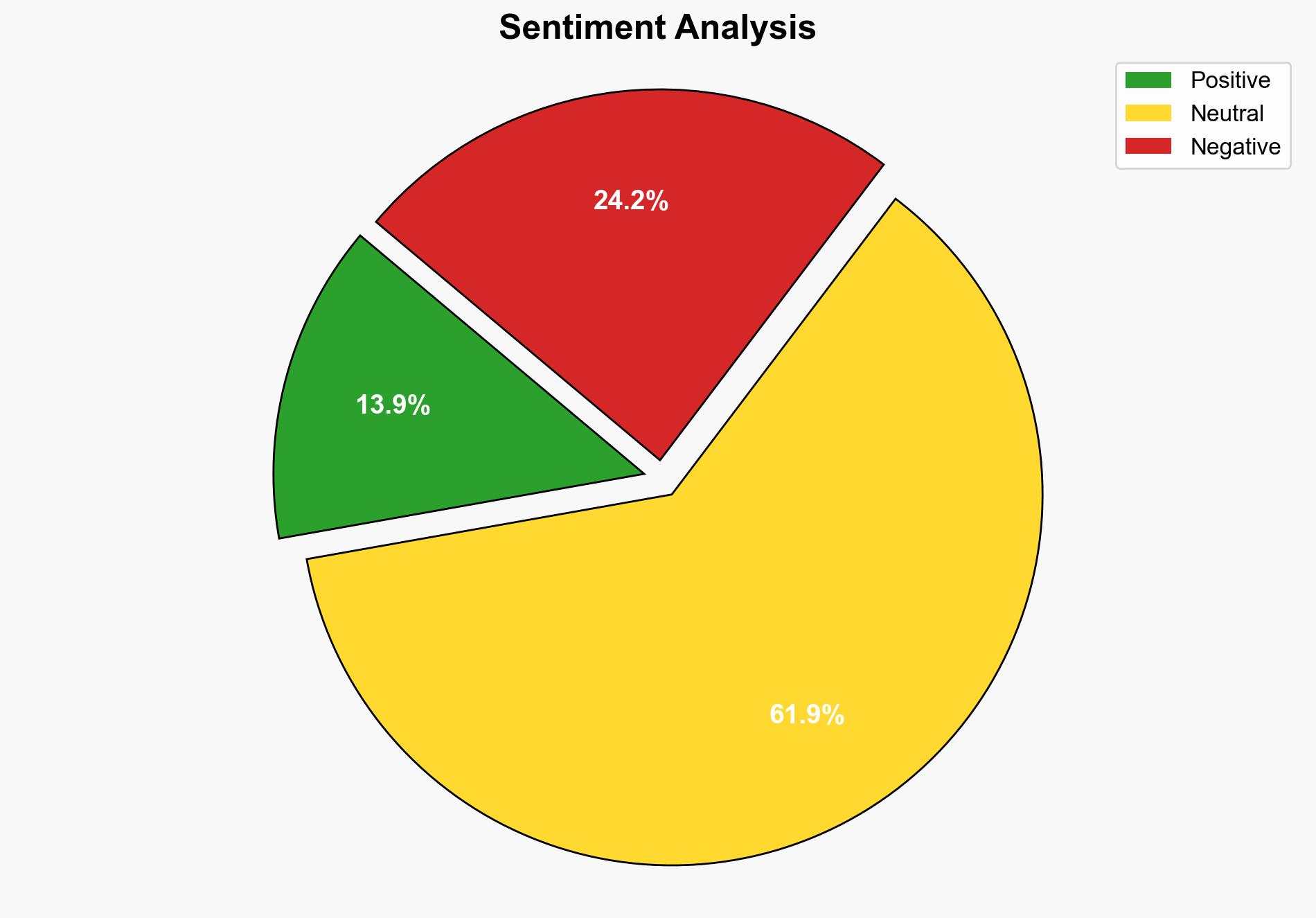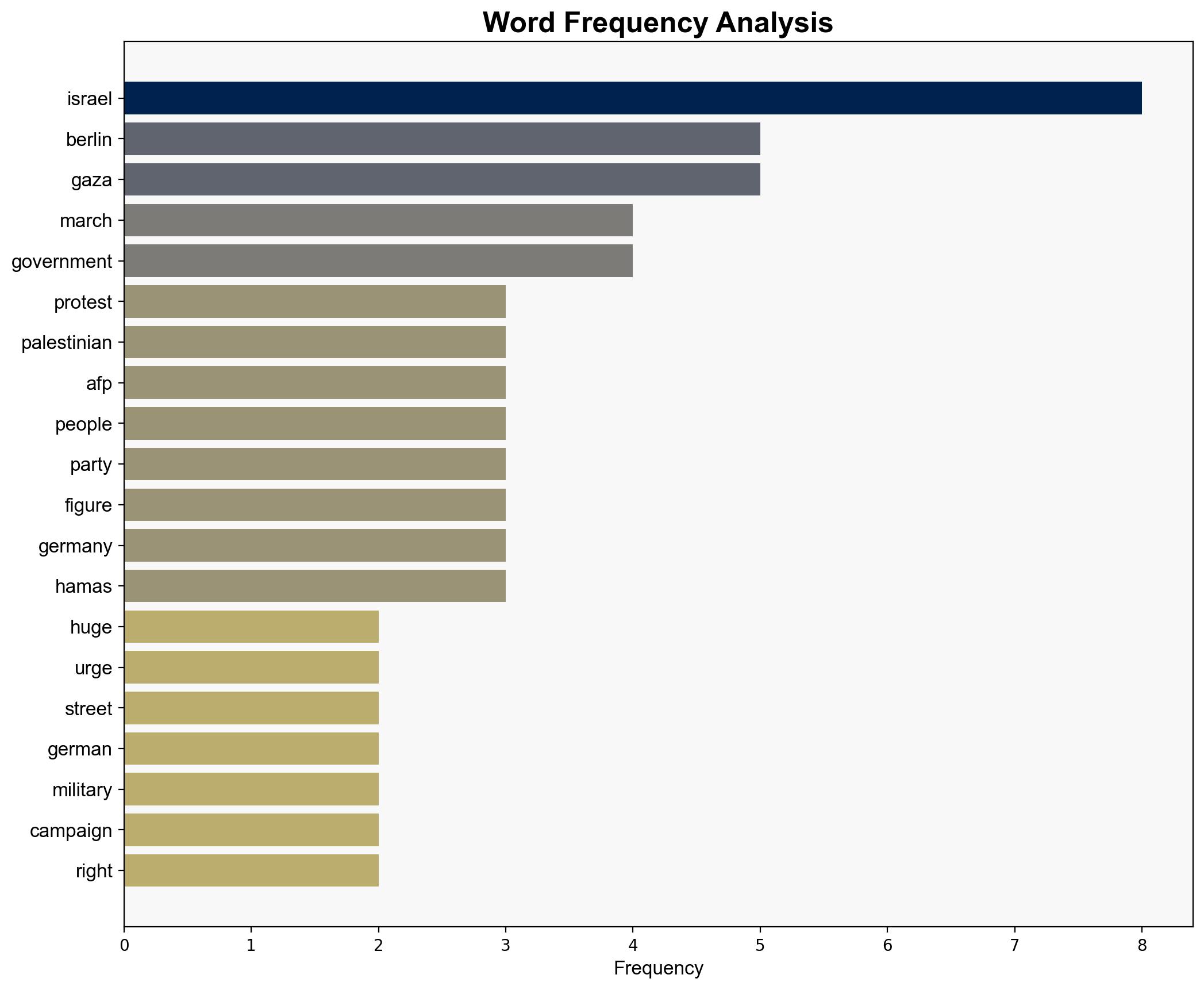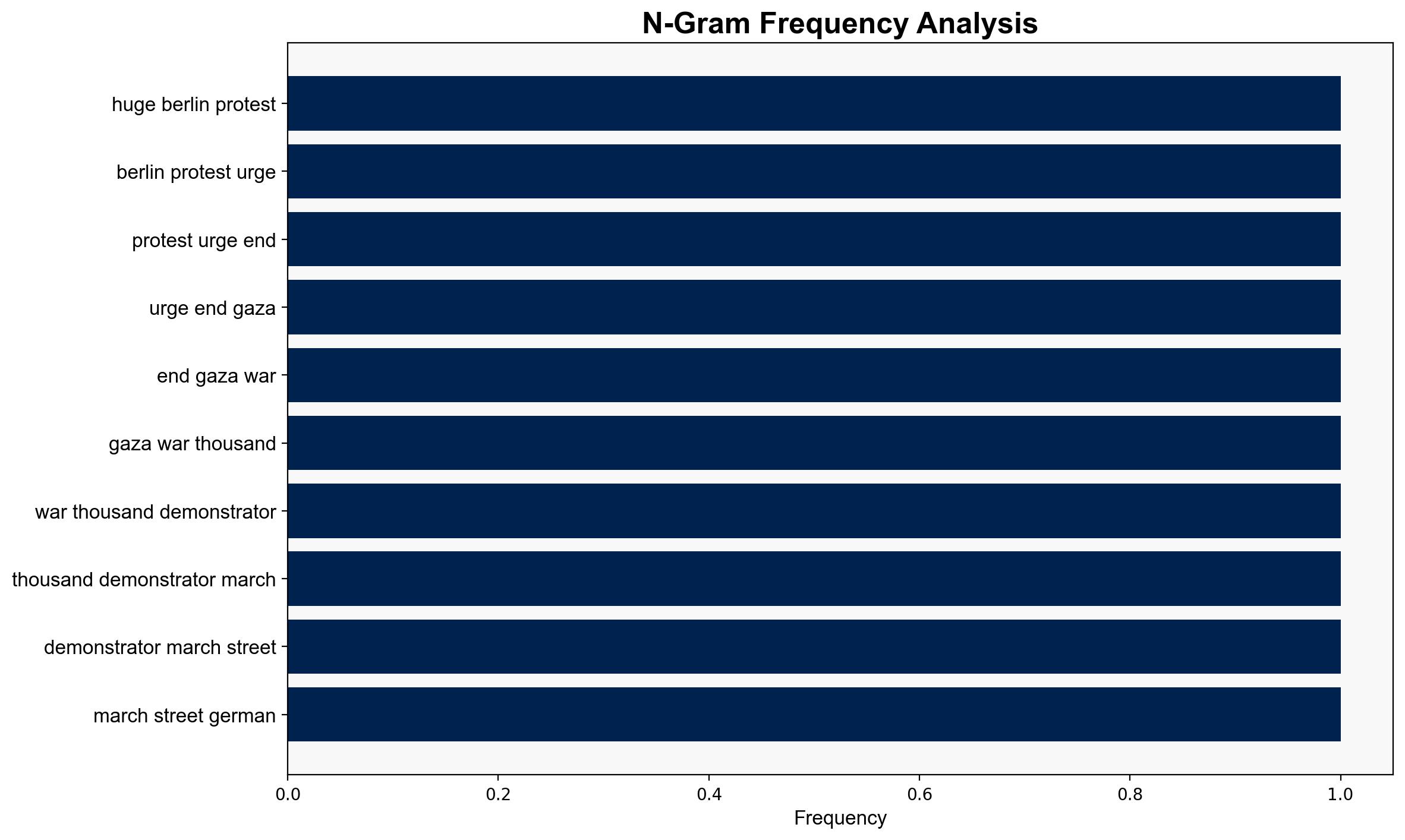Huge Berlin Protest Urges End To Gaza War – International Business Times
Published on: 2025-09-27
Intelligence Report: Huge Berlin Protest Urges End To Gaza War – International Business Times
1. BLUF (Bottom Line Up Front)
The most supported hypothesis is that the protest in Berlin represents a significant shift in public sentiment in Germany towards Israel’s military actions in Gaza, potentially influencing German foreign policy. Confidence level: Moderate. Recommended action: Monitor public sentiment and political responses within Germany and other EU countries for shifts in policy towards Israel and Palestine.
2. Competing Hypotheses
1. **Hypothesis A**: The Berlin protest signifies a growing public discontent with Israel’s military actions in Gaza, which could lead to increased political pressure on the German government to alter its traditionally supportive stance towards Israel.
2. **Hypothesis B**: The protest is a localized event driven by specific political groups and does not reflect a broader shift in German public opinion or policy towards Israel.
Using ACH 2.0, Hypothesis A is better supported by the scale of the protest, the involvement of political parties like Die Linke, and the historical context of Germany’s relationship with Israel. Hypothesis B lacks support due to the significant turnout and media coverage indicating broader public engagement.
3. Key Assumptions and Red Flags
– **Assumptions**: It is assumed that the protest size directly correlates with a shift in public opinion. Another assumption is that political parties like Die Linke have significant influence on national policy.
– **Red Flags**: The potential exaggeration of protest size by organizers and the lack of immediate policy changes following the protest.
– **Blind Spots**: Limited information on counter-protests or public opinion polls that could provide a more comprehensive view of German sentiment.
4. Implications and Strategic Risks
– **Geopolitical**: A shift in German policy could influence EU’s collective stance on the Israel-Palestine conflict, potentially altering diplomatic relations.
– **Economic**: Changes in arms sales to Israel could impact defense industries and bilateral trade agreements.
– **Psychological**: Growing public dissent may lead to increased polarization within Germany, affecting social cohesion.
5. Recommendations and Outlook
- Monitor developments in German political discourse and public opinion regarding Israel and Palestine.
- Engage with EU partners to assess potential shifts in collective foreign policy.
- Scenario-based projections:
- Best: Germany mediates a diplomatic resolution, enhancing its international standing.
- Worst: Escalation of protests leads to domestic unrest and strained international relations.
- Most Likely: Incremental policy adjustments without significant immediate changes.
6. Key Individuals and Entities
– Dustin Hirschfeld (mentioned as a participant in the protest)
– Friedrich Merz (Chancellor of Germany, mentioned in the context of policy announcements)
– Die Linke (political party organizing the protest)
7. Thematic Tags
national security threats, geopolitical shifts, public opinion, EU foreign policy, Israel-Palestine conflict





